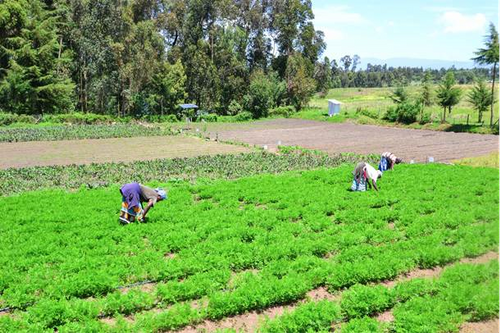Welcome to a new era of Efficiency for Access!
A message from Steven Hunt
Senior Energy & Innovation Advisor, DFID and Co-chair of the Efficiency for Access Coalition.

24 May 2018
If you are reading this article, then you are already part of the growing group of people and organisations recognising the potential of energy efficient appliances to accelerate access to energy.
The appetite was palpable amongst the leading household solar firms at the biannual Off-grid Solar Forum & Expo event in Hong Kong in January to expand the range of appliances which they were able to offer their customers – to add fridges, TVs, water pumps, fans, productive appliances, offered with Pay-as-you-Go affordability.
For energy access enterprises and funders alike, the case for more efficient appliances is compelling. For firms, efficient appliances expand the value proposition to customers, help customers waste less money on expensive alternatives, and grow their ability to afford more of the energy services they want – without taking system costs, including PV panels and batteries, beyond reach. For funders and social investors, the use of these additional appliances unlocks additional impacts – on livelihoods, health, safety, education, nutrition, women’s empowerment, and many other development goals.
The Hong Kong event in January also saw the official relaunch of the Efficiency for Access Coalition. DFID has the honour to co-chair the Donor Roundtable within the Coalition along with Power Africa. The growing donors group has so far enabled nine funding agencies and philanthropies to come together to co-ordinate support to the energy efficient appliances sector. This sector, and its benefits, extend beyond household solar to include appliances used on mini-grids and in weak- or bad-grid situations on the demand side, and to innovative appliance specialists, researchers and large manufacturing firms on the supply side. Efficiency for Access has already convened a global development roundtable in Nairobi on accelerating the contribution of Solar Water Pumps to boost agricultural production, and another on refrigeration in Amsterdam next week is already at capacity.

Efficiency for Access originally existed as a one-year campaign of the Clean Energy Ministerial, launched by The Global Lighting and Energy Access Partnership (Global LEAP) – whose partners include the World Bank Group, and the United Nations Foundation, among others, as well as over 120 industry signatories – in collaboration with Sustainable Energy for All, at COP21 in Paris.
The relaunch in January reflects the fact that this effort is now entering a new and operational phase. This phase involves new funding commitments, including the UK aid-funded Low Energy Inclusive Appliances (LEIA) programme, also launched in January. LEIA is a £18million, five-year research and innovation programme focused in two areas:
- Driving scale in near-to-market off-grid appliance technologies (e.g. refrigerators, solar water pumps and fans) that are in high demand by poor consumers, are close to market readiness and present strong opportunities to achieve scale in the programme timeframe.
- Enabling innovation in horizon appliance technologies with relatively unknown viability in low income markets so far, such as electric cooking and distributed agricultural processing technologies (such as rice de-huskers), as well as enabling technologies where breakthroughs would drive gains in multiple appliance segments (e.g. brushless DC motors, advanced insulation and cooling).
LEIA seeks to help halve the cost and double the efficiency of a range of off- and weak-grid appliances in least developed countries. But we can’t achieve market change like this alone, and that’s the importance of co-operation via Efficiency for Access.
Building on consultations with industry and research with consumers, there are a series of shared priorities which the Efficiency for Access Coalition will be looking to advance funding support to in the coming months, with LEIA and other UK aid support fully integrated. These include agricultural and productive use technologies, efficient healthcare appliances, and appliances expanding inclusion of opportunity, particularly for women and the disabled.
This e-newsletter will be an evolving source of useful information from the Efficiency for Access Coalition ecosysyem, including funding opportunities, learnings from the field, research outputs and data – plus news on emerging collaborations, products and technologies.
Contributions from you and your work are more than welcome, as is your feedback on how this newsletter, and the Coalition more broadly, can help achieve our shared objective of sustainable energy for all.
*Newsletter link: https://zcs1.campaign-view.com…